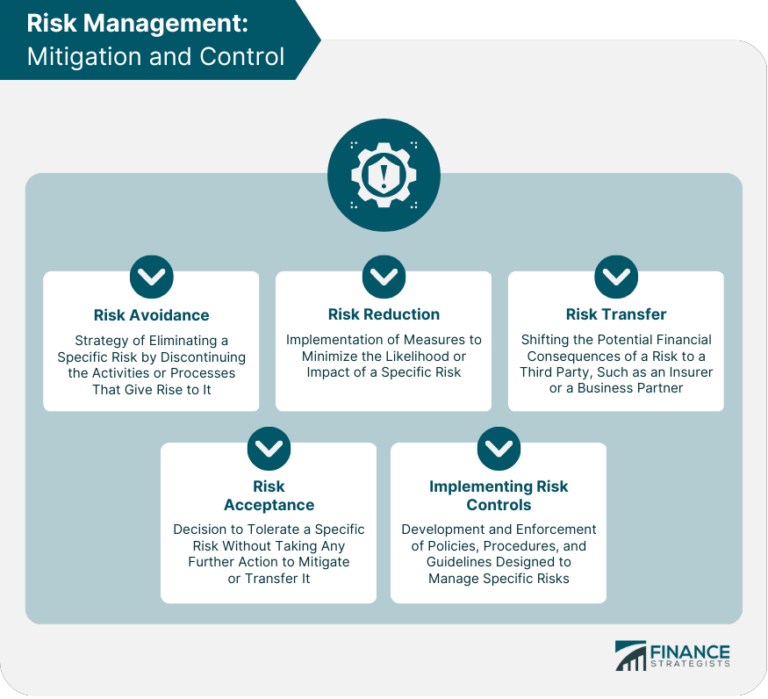Introduction
Definition of burnout
Burnout is a psychological condition that is characterized by chronic exhaustion, cynicism, and a decreased sense of accomplishment. It is often experienced by individuals who are overwhelmed by prolonged stress and high levels of work demands. In the legal profession, burnout is particularly prevalent due to the demanding nature of the job, long working hours, and the high stakes involved in legal cases. This can lead to physical and emotional exhaustion, feelings of detachment from work, and a reduced ability to perform effectively. Recognizing and understanding the definition of burnout is crucial in order to address and mitigate its negative impact on individuals in the legal profession.
Prevalence of burnout in the legal profession
Burnout is a pervasive issue in the legal profession, affecting a significant number of professionals in the field. The demanding nature of legal work, long hours, high levels of stress, and intense pressure to meet deadlines and deliver results contribute to the prevalence of burnout. Research studies have consistently shown that lawyers experience higher levels of burnout compared to professionals in other industries. The competitive and adversarial nature of the legal profession, coupled with the emotional toll of dealing with clients’ legal problems, further exacerbates the risk of burnout. It is crucial for individuals in the legal profession to recognize the signs of burnout and take proactive steps to address and prevent it, in order to maintain their well-being and provide effective legal services.
Impact of burnout on lawyers
Burnout has a significant impact on lawyers, affecting both their personal and professional lives. The demanding nature of the legal profession, with long hours, high stress levels, and intense pressure to perform, can lead to chronic exhaustion and emotional exhaustion. This can result in decreased job satisfaction, decreased productivity, and increased rates of depression and anxiety. Additionally, burnout can strain relationships with colleagues, friends, and family, as lawyers may become irritable, withdrawn, or disengaged. It is crucial for lawyers to recognize the signs of burnout and take proactive steps to address it, such as seeking support from peers, practicing self-care, and setting boundaries to maintain a healthy work-life balance.
Causes of Burnout
High workload and long hours
One of the major contributors to burnout in the legal profession is the high workload and long hours that lawyers often face. The demanding nature of legal work, combined with tight deadlines and client expectations, can lead to a constant state of stress and overwhelm. Lawyers are often required to work late nights and weekends, sacrificing personal time and hobbies. This relentless schedule can take a toll on their mental and physical well-being, ultimately leading to burnout. It is crucial for legal professionals to find ways to manage their workload effectively and prioritize self-care to prevent and cope with burnout.
High levels of stress
High levels of stress are a common occurrence in the legal profession. Lawyers often face demanding workloads, tight deadlines, and high client expectations, which can lead to feelings of overwhelm and burnout. The nature of the job, with its constant pressure to perform and deliver results, can take a toll on mental and physical well-being. It is not uncommon for legal professionals to experience symptoms such as fatigue, anxiety, and difficulty concentrating. Recognizing and addressing these high levels of stress is crucial for maintaining a healthy work-life balance and preventing burnout in the legal profession.
Lack of work-life balance
One of the major contributors to burnout in the legal profession is the lack of work-life balance. Lawyers often find themselves working long hours, including weekends and holidays, to meet the demands of their clients and the legal system. This constant pressure to be available and productive can lead to chronic stress, fatigue, and a feeling of being overwhelmed. Additionally, the nature of legal work, which often involves high-stakes cases and intense deadlines, can make it difficult for lawyers to disconnect from work and prioritize their personal lives. As a result, many legal professionals struggle to maintain healthy relationships, engage in self-care activities, and find time for hobbies and interests outside of work. Without a proper work-life balance, lawyers are at a higher risk of experiencing burnout and its associated physical, emotional, and mental health consequences.
Signs and Symptoms of Burnout

Physical symptoms
Burnout in the legal profession can have significant physical symptoms. Lawyers who experience burnout may notice an increase in headaches, muscle tension, and fatigue. They may also have difficulty sleeping and may experience changes in appetite. These physical symptoms can be debilitating and can interfere with a lawyer’s ability to perform their job effectively. It is important for lawyers to recognize and address these physical symptoms of burnout in order to prioritize their well-being and prevent further negative consequences.
Emotional symptoms
Emotional symptoms of burnout in the legal profession can manifest in various ways. Lawyers experiencing burnout may feel a sense of constant exhaustion and lack of motivation. They may also find themselves becoming more irritable and easily frustrated, both at work and in their personal lives. Additionally, they may struggle with feelings of cynicism and detachment, leading to a decreased sense of satisfaction and fulfillment in their legal careers. These emotional symptoms can have a significant impact on a lawyer’s overall well-being and ability to effectively perform their job duties.
Behavioral symptoms
Behavioral symptoms of burnout in the legal profession can manifest in various ways. Lawyers experiencing burnout may exhibit increased irritability and impatience, often snapping at colleagues or clients. They may also become withdrawn and socially isolated, avoiding interactions with others. Additionally, individuals may experience a loss of motivation and productivity, finding it difficult to concentrate or complete tasks. These behavioral symptoms can have a significant impact on an individual’s professional and personal life, making it crucial to address burnout in the legal profession.
Effects of Burnout on Mental Health
Increased risk of depression and anxiety
Burnout in the legal profession not only leads to physical and emotional exhaustion, but it also increases the risk of developing depression and anxiety. The demanding nature of the legal profession, with its long hours, high-pressure environments, and constant exposure to stressful situations, can take a toll on the mental well-being of legal professionals. The chronic stress and overwhelming workload can contribute to feelings of hopelessness, sadness, and a sense of being overwhelmed. Additionally, the competitive nature of the profession can exacerbate these feelings, as lawyers may feel the need to constantly prove themselves and meet high expectations. It is crucial for legal professionals to recognize the signs of burnout and seek support to prevent the development of depression and anxiety.
Decreased job satisfaction
Burnout in the legal profession often leads to decreased job satisfaction. When lawyers experience burnout, they may feel overwhelmed, exhausted, and emotionally drained. This can result in a lack of motivation and enthusiasm for their work, leading to a decrease in job satisfaction. The demanding nature of the legal profession, long working hours, high levels of stress, and the pressure to meet deadlines and client expectations can contribute to burnout. It is essential for lawyers to recognize the signs of burnout and take proactive steps to address it in order to maintain job satisfaction and overall well-being.
Impaired cognitive function
Impaired cognitive function is a common symptom experienced by individuals who are dealing with burnout in the legal profession. The demanding nature of the job, long working hours, and high levels of stress can take a toll on the brain’s ability to think clearly and make decisions effectively. Burnout can lead to difficulties in concentration, memory problems, and reduced mental agility. These cognitive impairments can have a significant impact on the overall performance and well-being of legal professionals. It is essential for individuals experiencing burnout to recognize and address these cognitive challenges in order to regain their cognitive function and prevent further deterioration.
Strategies for Coping with Burnout

Self-care practices
Self-care practices are essential for lawyers to manage and prevent burnout. Taking care of oneself not only improves mental and physical well-being but also enhances overall productivity and job satisfaction. Some effective self-care practices for lawyers include setting boundaries, practicing mindfulness and relaxation techniques, engaging in regular exercise, maintaining a healthy work-life balance, seeking social support, and pursuing hobbies and interests outside of work. By prioritizing self-care, lawyers can better cope with the demands and pressures of the legal profession and maintain their well-being in the long run.
Setting boundaries
Setting boundaries is crucial when it comes to coping with burnout in the legal profession. As lawyers, we often have demanding work schedules and high-pressure environments, which can easily lead to burnout if we don’t set clear boundaries. This means being able to say no to excessive workloads, setting realistic expectations for ourselves and others, and prioritizing self-care. By setting boundaries, we can create a healthier work-life balance, reduce stress, and prevent burnout in the long run.
Seeking support
Seeking support is crucial when dealing with burnout in the legal profession. It is important to recognize that burnout is not a sign of weakness or failure, but rather a common experience in a demanding field. By seeking support, whether it be from colleagues, friends, or professional resources, individuals can gain valuable insights, advice, and encouragement. Support can come in many forms, such as joining support groups, seeking therapy or counseling, or simply talking to someone who understands the challenges of the legal profession. Additionally, seeking support can help individuals develop healthy coping mechanisms and strategies to manage stress and prevent burnout in the future. Overall, seeking support is an essential step towards addressing and overcoming burnout in the legal profession.
Conclusion
Recognizing the importance of addressing burnout
Recognizing the importance of addressing burnout is crucial in the legal profession. Burnout is a pervasive issue that can have serious consequences on the well-being and effectiveness of legal professionals. It is essential for individuals and organizations in the legal field to acknowledge the impact of burnout and take proactive measures to prevent and manage it. By prioritizing the mental health and work-life balance of lawyers, firms and institutions can create a healthier and more sustainable work environment. Additionally, recognizing the signs and symptoms of burnout can help individuals seek the necessary support and resources to cope with and overcome this challenge. Overall, addressing burnout is not only beneficial for the well-being of legal professionals, but also for the overall success and reputation of the legal profession as a whole.
Encouraging a healthy work environment
Encouraging a healthy work environment is crucial in mitigating the risk of burnout in the legal profession. Law firms and legal organizations should prioritize employee well-being by implementing policies and practices that promote work-life balance, stress management, and mental health support. This can include flexible working hours, regular breaks, and access to counseling services. Additionally, fostering a culture of open communication and collaboration can help create a supportive and positive work environment where individuals feel valued and supported. By encouraging a healthy work environment, legal professionals can better cope with the demands of their profession and reduce the likelihood of burnout.
Promoting well-being in the legal profession
Promoting well-being in the legal profession is crucial to preventing and managing burnout. Law firms and legal organizations can play a vital role in creating a supportive and healthy work environment for their employees. This can be achieved through various initiatives such as implementing flexible work arrangements, providing resources for stress management and mental health support, promoting work-life balance, and fostering a culture of open communication and support. By prioritizing the well-being of their employees, legal professionals can enhance their overall job satisfaction, productivity, and mental health, ultimately reducing the risk of burnout.



















































